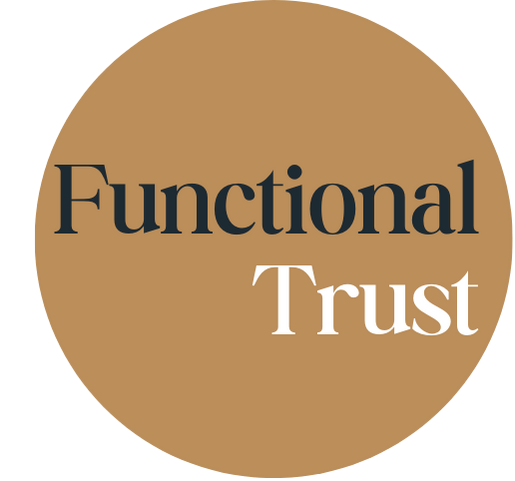Ever watched a play where two actors try to deliver the same lines? It’s awkward, confusing, and throws the whole scene off. Now, imagine that happening in your workplace or team. Chaos, right? This is what happens when people don’t know their function—when the Ideator tries to do the Operator’s job, or the Administrator starts leading brainstorming sessions. The end result? Confusion, frustration, and stalled progress.
The Play Analogy: Every Function Has Its Script
In every well-run play, there’s a clear script with assigned roles: lead actors, supporting cast, the director, and the stage manager. Each knows their lines, cues, and responsibilities. The lead actor has the spotlight, the stage manager runs things behind the curtain, and the director oversees the whole production. If anyone steps out of line or takes over someone else’s role, the production falls apart.
The same concept applies to your team or work environment. Whether in a meeting, on a project, or in daily operations, each person plays a critical function. Here’s how those functions break down:
- The Ideator – The visionary who thrives in the brainstorming phase, constantly generating new possibilities and fresh ideas.
- The Operator – The executor who turns ideas into action, ensuring everything runs smoothly and goals are met.
- The Administrator – The organizer who creates structure, ensuring processes are followed and important details don’t get lost.
Just like in a play, when you know your function, you know your role within the team. You understand how to interact with others and contribute to the overall success. When people don’t stay in their lanes, though—like two actors trying to say the same line—it creates confusion, inefficiency, and wasted energy.
Why Knowing Your Function Builds Sustainable Success
When everyone understands their function, interactions become smooth, predictable, and effective. You know who’s responsible for generating ideas, who will turn those ideas into reality, and who’s keeping track of progress and accountability. This creates sustainable success—you’re operating in roles that naturally energize you, allowing you to avoid burnout and keep momentum through transitions.
Here’s why this clarity matters for building sustainable success:
- Competence: You’re playing to your strengths. Knowing your function means you’re delivering value in areas that energize and suit you best.
- Reliability: When you stick to your function, others can rely on you to perform well—and you can rely on them to do the same.
- Sincerity: Clear communication about your role and boundaries prevents overlap, confusion, or stepping on anyone’s toes.
This dynamic is similar to actors nailing their lines in every scene. They don’t try to improvise in someone else’s spotlight; they know their function and trust their fellow cast members to do the same. This builds trust and creates a seamless flow, ensuring the team’s (or the play’s) success.
The Danger of Functional Confusion
When functions aren’t clearly defined, things start to unravel. Imagine two Ideators locked in brainstorming mode, coming up with endless ideas, but no Operator is there to turn those ideas into action. Or an Operator tries to move forward without the structure provided by an Administrator, and the project spirals into chaos.
In this scenario, the Ideators and Operators step on each other’s toes, no one knows where they fit, and nothing gets done. The same thing happens in a play when actors miss their cues or try to perform another actor’s part—it leads to confusion, missed opportunities, and, ultimately, failure.
How to Stay in Your Lane
To avoid the chaos of overlapping functions, here’s a simple framework for staying in your lane:
- Identify Your Function: Are you an Ideator, Operator, or Administrator? Understand your natural strengths and where you add the most value.
- Recognize Others’ Functions: Acknowledge the roles your teammates play. Knowing their responsibilities helps you avoid stepping into someone else’s lane.
- Stick to Your Script: Once you know your function, stay focused on it. Trust that others will do the same, and don’t try to take over another’s role.
- Communicate Clearly: Just like actors practicing lines together, frequent and clear communication is key to ensuring everyone is aligned and sticking to their function.
Why Energy Matters: Aligning Roles with Strengths
The best teams—and the most successful transitions—are those where people are operating from a place of energy. If you’re an Ideator, trying to take on the Operator’s role will feel draining. If you’re naturally organized as an Administrator, brainstorming without structure will sap your energy and make the team’s process inefficient.
When people perform roles aligned with what energizes them, they not only work better individually but also help the whole team perform at a higher level. It’s the difference between an actor confidently delivering their lines and a disorganized scene where everyone fumbles. Staying in your role means you can contribute your best, avoid burnout, and help the team maintain focus through any transition.
Own Your Function and Let Others Shine
What can you do today? Embrace your function and allow others to fully step into theirs. If you’re an Ideator, focus on generating creative solutions, not execution. If you’re an Operator, get things done but leave the creative dreaming to the Ideators. And if you’re an Administrator, keep the structure intact while letting the rest of the team thrive in their roles.
When you stay in your function, you energize both yourself and your team, helping everyone work more efficiently and effectively. The result? A stronger, smoother, and more successful team—just like the best plays, where every actor plays their part perfectly.
Enough with the confusion. It’s time to know your function—and stick to it—for greater energy, trust, and long-term success.
Ready to discover your core function? Take our Archetype Quiz to find out if you’re an Ideator, Operator, or Administrator and learn how to unlock your potential by aligning your work with your strengths!

